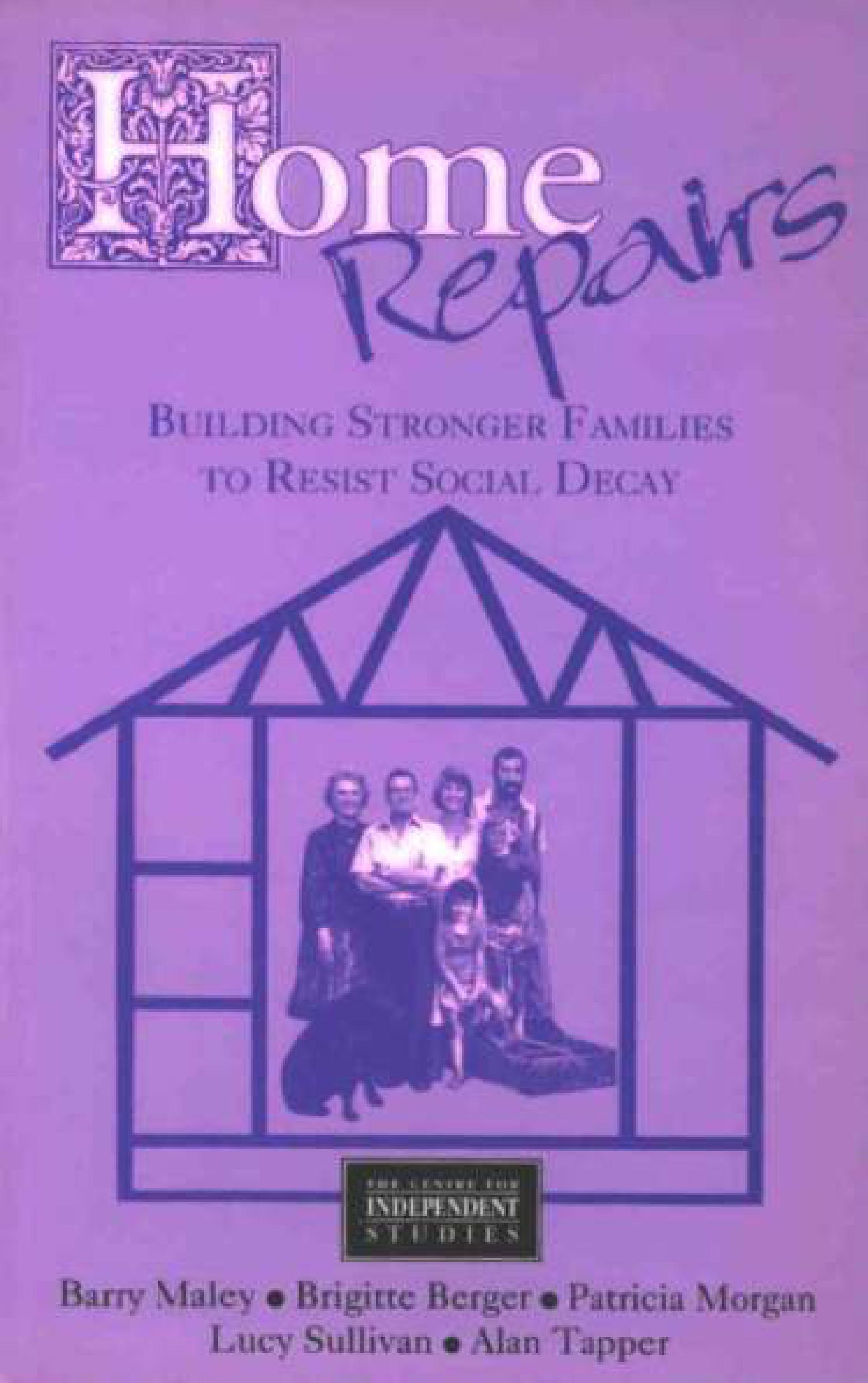
A mood of discontent afflicts societies throughout the Western world. Despite their successes, some social indicators indicate that these societies are going backwards in key areas of well-being The CIS’s Taking Children Seriously research program was established to look at the long-term causes of this decline, with particular reference to child well-being — a subject important in itself, but also because of its impact on adult functioning in the future. Common sense suggests that the family is central to child well-being. Home Repairs aims to spell out the nature, causes, consequences and implications of family change in Australia.
In ‘Crime. Violence and the Australian Family’. Barry Maley details the major changes in family formation, structure. and dissolution. People arc marrying later, and having more children out of wedlock, though fewer children overall. Divorce is running at three times the rale of the 1960s.
Why have families changed? In The Faults in No-Fault Divorce’, Barry Maley points to several explanations. The economics of marriage have changed, so that the costs of marriage arc higher and the benefits lower. The law of divorce changed in 1975. allowing easier divorce. However ‘no-fault’ divorce cannot just be explained as a political event; it reflected deeper changes in attitudes toward marriage, children, and relations between the sexes. Lucy Sullivan’s ‘Feminism and the Loss of Middle-Class Culture’ traces some of these attitudinal shifts to status changes for middle class wives in the post-war period. With the loss of domestic help to the industrial workforce, middle-class women found themselves performing ‘class-inappropriate’ manual labour, while their husbands retained of non-manual employment. In ‘Crime, Violence and the Australian Family’, Barry Maley makes a powerful case in favour of weakened families being a major cause of dramatically increased crime. Family failure is not the only reason for rising crime, but it interacts with other socioeconomic factors and personal shortcomings to greatly increase the chances that some individuals will engage in criminal activity.
In ‘The State of the Family: Recent Research in Australia’ Alan Tapper reports on a sophisticated Western Australian study of child health. It finds that there is a strong relationship between families and child mental health, the subject of the study’s initial published findings. Several aspects of families were found to be important. Children in their original family were much less at risk of mental health problems than children in blended or single parent families. Coercive or inconsistent parenting styles greatly increase the risk of child mental health problems. Children in families classed as having ‘poor’ family functioning were also at greater risk of mental health problems.
In ‘Conflict and Divorce: Like a Horse and Carriage?’ Patricia Morgan investigates the negative effects of divorce. The particular interest of her chapter is its attention to the conflict surrounding divorce. One common argument in favour of easy divorce is that it ends conflict-ridden relationships. Morgan argues (hat easy divorce may in fact create a disincentive to settling disputes, and that conflict after divorce also has serious consequences as the parties fight over property and children.
Mostly, Home Repairs is about clarifying the nature of the problems we face, rather than putting forward suggestions for solving them. However, anyone who accepts the seriousness of the problems has a
duty to look carefully at what might be done about them.
There will be a number of policy proposals made as the Taking Children Seriously program advances. In this volume, in ‘The Faults in No-Fault Divorce’. Barry Maley canvasses the need for family law to encourage responsible behaviour within marriage by allowing proven fault by a spouse to affect the terms of the divorce settlement. This would alter the economic incentives surrounding marriage, providing penalties for behaviour inimical to marriage as an institution. As important as financial incentives may be. a change in the law would both signal and reinforce a shift in attitudes toward marriage and family — alerting us to a new understanding of their importance, and giving that understanding public support.
